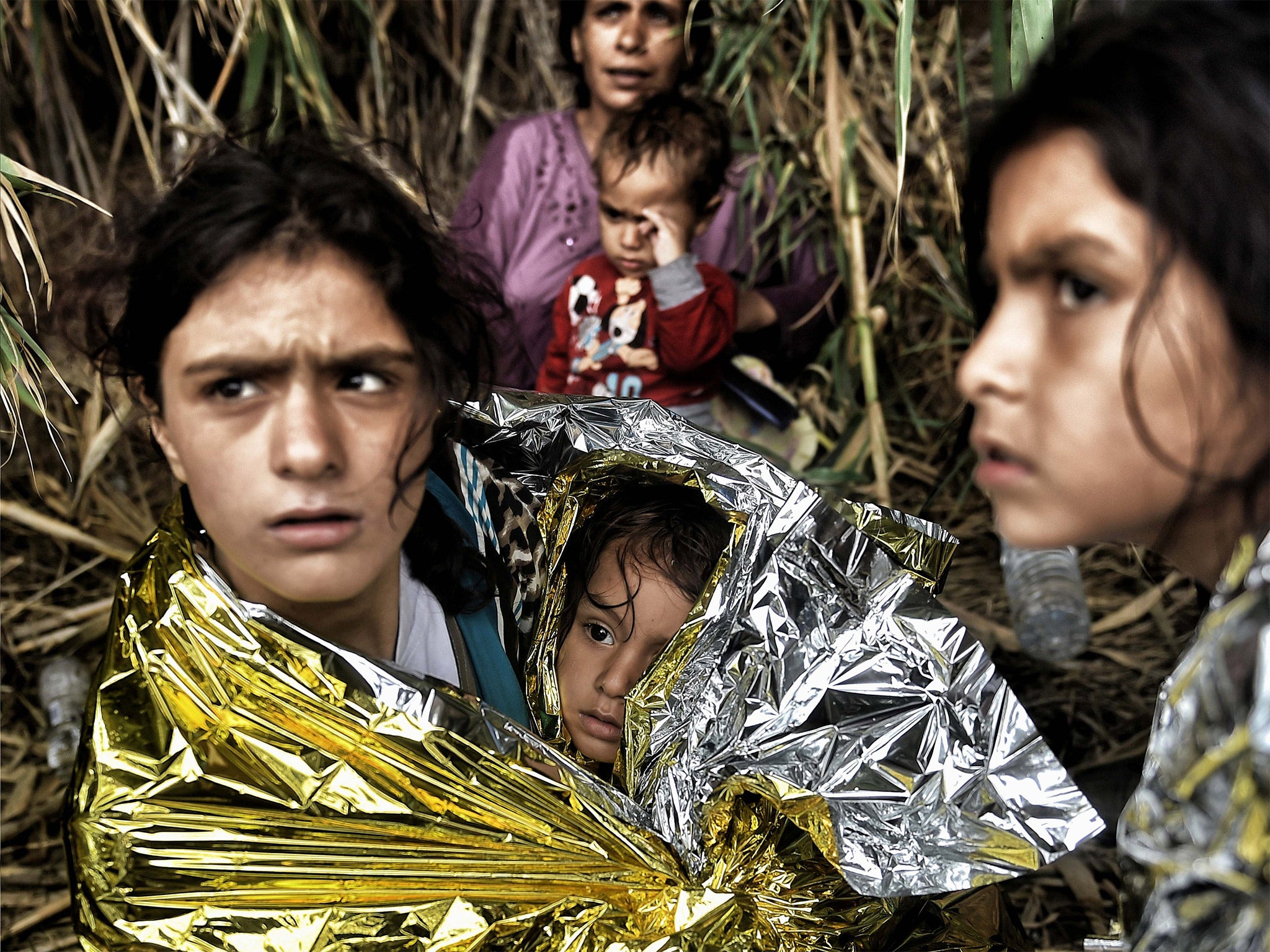European states ‘complicit’ in deportation of Syrian refugees
Amnesty International said those fleeing war were being rounded up

Your support helps us to tell the story
From reproductive rights to climate change to Big Tech, The Independent is on the ground when the story is developing. Whether it's investigating the financials of Elon Musk's pro-Trump PAC or producing our latest documentary, 'The A Word', which shines a light on the American women fighting for reproductive rights, we know how important it is to parse out the facts from the messaging.
At such a critical moment in US history, we need reporters on the ground. Your donation allows us to keep sending journalists to speak to both sides of the story.
The Independent is trusted by Americans across the entire political spectrum. And unlike many other quality news outlets, we choose not to lock Americans out of our reporting and analysis with paywalls. We believe quality journalism should be available to everyone, paid for by those who can afford it.
Your support makes all the difference.European nations may be “complicit” in the illegal deportation of thousands to Syria and Iraq after striking a deal with Turkey to stem the flow of refugees, a report warns today, ahead of the latest talks on the crisis.
As EU leaders prepare to meet for fresh talks on the refugee crisis in Brussels tomorrow, Amnesty International said that those fleeing war were being rounded up, detained and in some cases forced to return to the countries they escaped. Turkey is the world’s largest host of refugees, with 2.2 million Syrians and 230,000 asylum-seekers from elsewhere. The country has spent almost £6bn supporting them.
According to Amnesty International, however, a policy shift was apparently triggered by talks between Turkey and the EU, which is desperate to reduce the numbers of people reaching its shores. A joint action plan agreed in October promised to relaunch Turkey’s stalled bid for EU membership and pledged €3bn (£2.2bn) in financial assistance in return for a clampdown on smuggling routes and efforts to improve the lives of refugees in Turkey.
Amnesty International conducted interviews with more than 50 asylum-seekers and refugees who had been detained and, in some cases, deported. It found that, from September, Turkish authorities began arbitrarily apprehending some of those attempting to cross illegally into the EU.
Those held were sent to isolated detention centres. Some reported being shackled, beaten and either forcibly sent back to the places they fled or warned that they would not be released unless they returned.
While the number of deportations to Iraq and Syria verified by the group was small, at “more than a hundred”, it said that its research suggested that the true number could be far higher and could also include returns to Afghanistan. John Dalhuisen, Amnesty International’s director for Europe and Central Asia, said that the group was deeply concerned by the arbitrary detention of “some of the most vulnerable people on Turkish soil” and by deportations that violated both Turkish and international law.
Mr Dalhuisen said that, by engaging Turkey as Europe’s “gatekeeper”, the EU risked “ignoring and now encouraging serious human rights violations”. He added: “EU-Turkey migration-related co-operation should cease until such violations are investigated and ended.”
In Ankara, however, a senior government official said that Turkey “categorically denies” that any Syrian refugees were forced to go back to Syria. He said that some Syrians with proven ties to criminal gangs were sent to a refugee camp in Osmaniye province, home to one of two facilities identified in the report. These people were allowed to return home, he added.
The claims came as the US Secretary of State John Kerry met his Russian counterpart, Sergei Lavrov, and Vladimir Putin last night to discuss the Syrian conflict.
Both men began discussions by reiterating their commitment to fighting international terrorism. Mr Kerry called Isis “the worst of terrorists”, adding that they “are a threat to everybody, to every country... There can be no negotiation”.
Following their meeting, the pair met the Russian President Vladimir Putin. Talks with Mr Putin are expected to focus on the crisis in Ukraine as well as questions over President Bashar al-Assad’s role in a post-war Syria.
Join our commenting forum
Join thought-provoking conversations, follow other Independent readers and see their replies
Comments